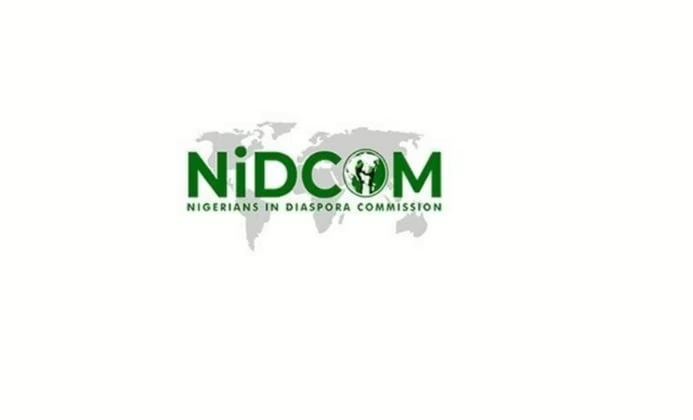The recent controversy sparked by a social media post from Mrs. Abike Dabiri-Erewa, Chairperson of the Nigerians in Diaspora Commission (NiDCOM), which disparaged the Igbo ethnic group, has once again exposed the delicate nature of ethnic relations in Nigeria and highlighted the critical responsibilities of public officials.
This incident is not an isolated case of Mrs. Dabiri-Erewa making ethnically insensitive remarks, nor is it likely to be the last time a public figure finds themselves embroiled in such disputes. However, focusing solely on individuals obscures the broader, systemic challenges at play. The pressing question we must ask is: why do Nigerian public officials repeatedly demonstrate a lack of sensitivity regarding ethnicity and identity without facing meaningful repercussions?
The Power of Language in Public Service
In a country with over 250 ethnic groups, words carry significant weight. Every statement from those in public office is far from neutral; it can either bridge divides or deepen mistrust. A single careless comment can reinforce harmful stereotypes and exacerbate existing tensions.
Public officials are not merely private citizens expressing personal views-they represent the voice of the state. Their communications, whether on social media or in official settings, reflect government stance and influence national unity. The office they hold transcends individual identity, making every word a reflection of the nation’s values.
The Danger of Automatic Defenses
Equally concerning is the tendency of supporters to instinctively defend public officials when they err, often prioritizing loyalty over accountability. This reflexive protection, especially when the offense is indefensible, undermines efforts toward national unity.
For example, in recent hours, some Igbo leaders and groups have taken to social media to justify the NiDCOM chairperson’s remarks rather than critically examine them. Such defensive postures, often fueled by political allegiance or ethnic solidarity, hinder honest dialogue and progress. True nation-building requires that truth and justice take precedence over blind allegiance.
The Lack of Accountability
In many democracies, a senior official accused of ethnic bias would face immediate consequences, such as:
- Suspension pending a thorough investigation.
- Public acknowledgment of wrongdoing and formal apology.
- Implementation of corrective actions, including possible dismissal.
In countries like the UK and the US, even minor missteps related to racial or ethnic insensitivity have led to resignations or career setbacks. Unfortunately, Nigeria’s weak institutional mechanisms allow such controversies to fade without resolution, perpetuating a cycle of impunity.
Structural Weaknesses Fueling Ethnic Insensitivity
The NiDCOM incident underscores several systemic flaws:
- Absence of Mandatory Ethnic Sensitivity Training: Few officials receive formal education on Nigeria’s ethnic diversity or inclusive communication.
- Inadequate Oversight: Legislative bodies seldom enforce sanctions or demand accountability from agency heads.
- Ethnicity as a Political Tool: Politicians often manipulate ethnic identities to secure loyalty and evade responsibility.
- Social Media’s Amplifying Effect: Digital platforms can rapidly escalate ethnic tensions by spreading inflammatory content across communities and the diaspora.
Proposals for Enhancing Governance Through Ethnic Awareness
Nigeria’s challenge is not a lack of rules but the absence of enforceable frameworks suited to contemporary realities. To foster better ethnic relations within governance, the following measures are essential:
- Establish a National Code of Conduct on Ethnic Sensitivity: A binding legal framework for all public officials that:
- Bans ethnically inflammatory language.
- Regulates social media behavior.
- Mandates respectful representation of state institutions.
- Implement Mandatory Diversity and Inclusion Training: Senior officials should complete programs covering:
- Certification in ethnic relations to appreciate Nigeria’s multicultural fabric.
- Digital citizenship to promote responsible online engagement.
- Conflict sensitivity to manage communication during crises.
- Introduce Graduated Penalties for Violations:
- First offense: Written warning and mandatory retraining.
- Subsequent offenses: Suspension without pay.
- Severe breaches: Termination and prohibition from future appointments.
- Create an Independent Ethics and Accountability Panel: Reporting to the Presidency and National Assembly, this body would:
- Investigate complaints promptly.
- Recommend transparent sanctions.
- Publish regular public reports.
- Leverage Diaspora Networks for Civic Education: Given their exposure to diverse societies, Nigerian diaspora communities can:
- Facilitate cross-cultural learning on ethnic sensitivity.
- Collaborate with organizations like NIDO and civil society to conduct training workshops.
- Advocate for inclusive leadership through research and public engagement.
Leadership and National Unity
This issue transcends Mrs. Dabiri-Erewa’s actions; it reflects on our institutions, shared values, and the future of Nigeria. The nation cannot tolerate ethnic insensitivity at the highest levels of governance. Public office is a sacred trust, demanding careful speech and accountable conduct.
Unity is not something that can be imposed by law alone; it must be cultivated through empathy, responsibility, and consequences for misconduct.
If Nigeria is earnest about building a cohesive nation, the NiDCOM episode should serve as a catalyst for meaningful reform rather than a forgotten controversy.
Nweke is an International Trade Consultant and researcher in Economic Diplomacy.

















